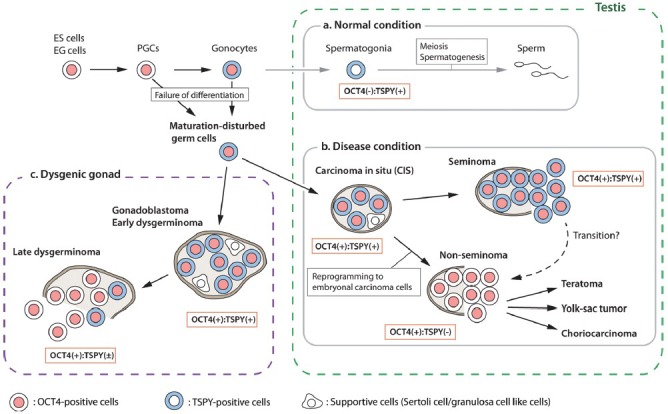Figure 3.

Schematic representation of expressions of testis-specific protein, Y-encoded (TSPY) and OCT3/4 in normal testis and type-II germ cell tumors. Germ cell expresses OCT3/4 until it reaches the maturation status. (Process-a) In normal testis, germ cell mature as spermatogonia, and lost OCT3/4 expression while it expresses TSPY. (Process-b) Failure of germ cell maturation causes development of carcinoma in situ (CIS) in the testis. The CIS cells are mostly OCT3/4-positive and TSPY-positive. It further develops into invasive seminoma (OCT3/4-positive and TSPY-positive) or nonseminoma via reprogramming to embryonal carcinoma status (OCT3/4-positive but TSPY-negative). (Process-c) In dysgenic gonad, maturation disturbed germ cells develop gonadoblastoma (OCT3/4-positive and TSPY-positive), and further progress into invasive dysgerminoma (OCT3/4-positive but TSPY-negative).
